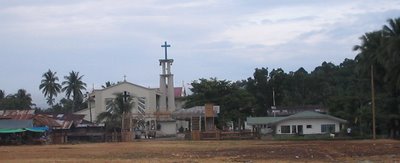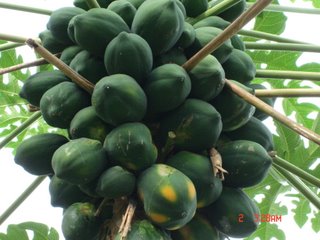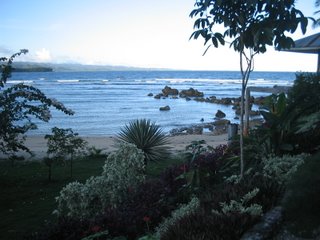 Whenever I watch the national news on television and see the country's political leaders practically foaming in the mouth as they debate endlessly among themselves the issue of the need for constitutional change, I always wonder if they have any idea how irrelevant and confusing the matters they are so vociferously arguing on are to the greater majority of the Filipino people who they claim to represent.
Whenever I watch the national news on television and see the country's political leaders practically foaming in the mouth as they debate endlessly among themselves the issue of the need for constitutional change, I always wonder if they have any idea how irrelevant and confusing the matters they are so vociferously arguing on are to the greater majority of the Filipino people who they claim to represent.Or perhaps that is the real intention after all; to make the discussion so esoteric and highfaluting that the ordinary man on the street would throw his hands up in the air in confusion, give up in despair and then leave the matter to their presumed to be more enlightened government representatives to "resolve to the nation's interest". Then the people's representatives, who may not be as noble as they project themselves to be, can really have their cake and eat it too.
The fact remains that the typically ordinary man walking the dusty streets of Lianga has no clear idea of what constitutional change is, what changes are to be made and what the consequences of these changes will be. He also has probably only a faint understanding of the effects of a shift from a presidential form of government to the parliamentary model. And if he did have an opinion on the matter, he would feel incompetent to publicize such a view and would regard his opinion as largely irrelevant in the general scheme of things.
That is not how democracy is supposed to work. Issues like charter change must be made understandable to the masa or the common folk. There is supposed to be general discussion and debate not the general impression that the whole thing is being rammed down our throats without us having even a tiny say in the matter.
Opinion polls have consistently shown that majority of the Filipino people oppose charter change now and a similar majority does not view with approval the shift to the parliamentary system of government. But even these figures can be misleading if you consider the vast majority of the people who have virtually no awareness much less an opinion on these issues.
The masa in Lianga are among those unfortunates whose opinions will not be counted. The even greater tragedy is that they would not care less being bypassed and ignored. In their world, just surviving in the midst of poverty is a daunting enough challenge they have to meet every day. Why worry then and lose sleep over something as unimportant and irrelevant as charter change.










